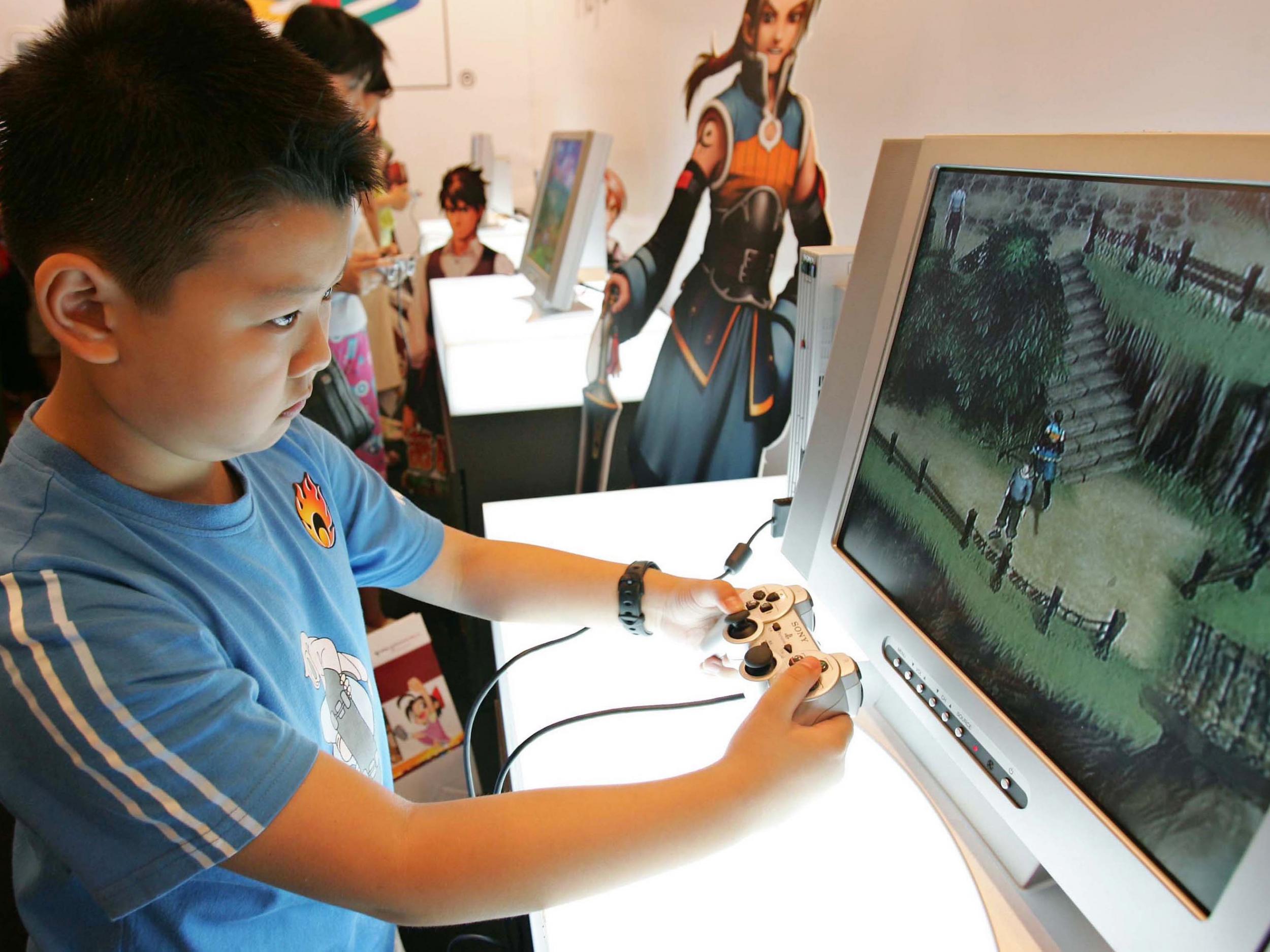China bans children playing video games for more than 90 minutes a day or at night
Authorities say gaming addiction can be detrimental to 'physical and mental health of minors'

Your support helps us to tell the story
From reproductive rights to climate change to Big Tech, The Independent is on the ground when the story is developing. Whether it's investigating the financials of Elon Musk's pro-Trump PAC or producing our latest documentary, 'The A Word', which shines a light on the American women fighting for reproductive rights, we know how important it is to parse out the facts from the messaging.
At such a critical moment in US history, we need reporters on the ground. Your donation allows us to keep sending journalists to speak to both sides of the story.
The Independent is trusted by Americans across the entire political spectrum. And unlike many other quality news outlets, we choose not to lock Americans out of our reporting and analysis with paywalls. We believe quality journalism should be available to everyone, paid for by those who can afford it.
Your support makes all the difference.China has announced drastic curfew measures on children in an attempt to curb video game addiction in the country.
Gamers under the age of 18 will be banned from playing online games for more than 90 minutes on week days and will be forbidden from playing between 10pm and 8am. On weekends and public holidays they will be allowed to play up to three hours per day.
Official government guidelines outlining the new restrictions were issued by China's General Administration of Press and Publication and will be imposed directly through gaming platforms operating in the country.
A spokesperson for the administration told state-run Xinhua News Agency that the measures were designed to protect the "physical and mental health of minors".
The rules also include limitations on the amount of money children can spend within games, with gamers under 16 years old allowed to spend up to 200 yuan (£22) per month, and those between 16 and 18 able to spend 400 yuan.
China is the world's second biggest gaming market behind the US but authorities in the country have repeatedly criticised the negative impact video games can have on young people.
A study in 2015 found that 500 million Chinese citizens suffered from visual impairment, which researchers blamed on the rise of mobile phones and online games.
There is no scientific consensus that myopia can be caused by video games but East Asian countries have seen a significant rise in the condition in recent years.
Last year, the World Health Organisation recognised video game addiction as an mental health disorder. Internet gaming disorder causes someone to have "significant issues with functioning" due to the addiction, according to the organisation.
It is officially characterised by "impaired control over gaming, increasing priority given to gaming over other activities to the extent that gaming takes precedence over other interests and daily activities, and continuation or escalation of gaming despite the occurrence of negative consequences".

Video game companies have been accused of purposefully making their games more addictive, with Fortnite developer Epic Games recently accused of hiring psychologists to "make it as addictive as possible".
A legal filing claims Epic Games "knowingly put on the market a very, very addictive game which was also geared toward youth".
Epic Games partnered with Chinese gaming giant Tencent in 2018 to bring the hugely popular game to China, however it failed to receive government approval for monetisation at launch and has since not achieved the same success it has achieved elsewhere in the world.
Join our commenting forum
Join thought-provoking conversations, follow other Independent readers and see their replies
Comments